Creative + Academic Work
‘Sensations of Rootedness’ in Cosmopolitan Rangoon or How the Politics of Authenticity Shaped Colonial Imaginings of Home
This essay compares three texts, each written from one of Rangoon’s resident mobile cultural identities, that represent ‘sensations of at-homeness’ in the colony.
“…’sensations of rootedness,’ imagined through associations with blood and soil, may be expressed as maintaining equilibrium. This paper contributes to understandings of ‘plurality’ in colonial Burma and ‘Anglo-Burmese’ experiences and identities.”

Business Class
An opinion piece following my 2017 trip travelling Business Class from Guangzhou, China, to Yangon, Myanmar.
“In November 2017, I travelled Business Class from Guangzhou, China, to Yangon, Myanmar. I was trying to catch the end of a conference — which, incidentally, meant flying into Yangon on the same day Pope Francis was flying out. There must have been some embargo on seats that lifted at just the right time, because my travel agent found a seat available in Business Class that was also in my budget. It was, in fact, the same price as economy.”

How to be different
On the complex process of negotiating who you are in the context of where you are. Originally published in Meet me at the Intersection, a collection of work by new and emerging writers who are often overlooked by traditional publishing projects.
“I have an accent, and when Australians first meet me, they often want to know if I am American or Canadian. Then, because of my looks, they want to know whether I am part Asian. And then they want to know how long I’ve lived here, in Australia.”
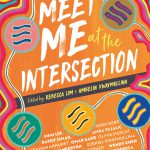
Tea ceremony
A short story about Melbourne in a heat wave and the loyalties we find when we get sweaty.
“I knew it was wrong as I left the store, the box sitting flat and heavy in my black and white plastic bag. But there’s a weakness I have for paying less than full cost. If I haven’t really earned a thing, it becomes that bit more precious.”

Love, loss and the last days of Rangoon (audio)
Dr Michelle Aung Thin reveals how Gordon Luce’s Burmese collection is helping her imaginatively recreate the vanished world of the wealthy, cosmopolitan and colonial city of Rangoon for her new semi-autobiographical novel.
My grandparents had stayed behind. I never met them. In fact none of my family has ever been allowed back. I was the first one to return. So why did I go? I was quite reluctant to go for a really long time, but really I was so keen to know about the place where I had been born. And what I found was society in total transition.
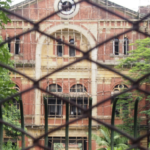
From Asia literacy to Australia literacy panel (video)
Public Seminar Series: Narrating my story as a member of multicultural society
Narrating one’s own experience is a significant act of empowerment for a person with multicultural backgrounds. However such narrative is often listened to as a story of ‘ethnic minorities’, not as that of fellow citizens co-dwelling in society. Featuring three acclaimed creative writers, this seminar discusses the ways in which migrant or diasporic stories are addressed as a member of society and received without being reduced to ‘their’ stories.
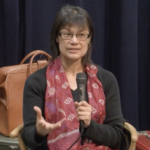
Yangon: Conversations About Art
A tension between the past and the present pervades the city.
Throughout the city’s flourishing galleries, artists were asking what it meant to live in Myanmar, how the past continued to shape the present and what the future might hold.
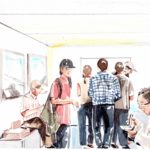
Skin, intimacy and authenticity: Literary representations of Anglo-Burmese women in The Lacquer Lady
The Lacquer Lady, by F. Tennyson Jesse, is a rare example of a novel set in colonial Burma with a mixed-race, Anglo-Burmese protagonist, yet is overlooked by postcolonial literary critics.
Anglo-Burmese skin always intimates. It alludes to sexual transgression and to the other. It stretches the idea of skin and what may or may not be contained within it. It connects to and stands in for other skins (where skin delineates the limit of or is a metaphor for a subject). Through this continuous allusion, this contingency, it complicates rather than clarifies difference.
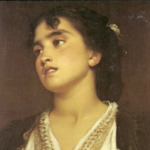
The writerly skin: The potential of the limit in representing Anglo-Burmese mixed-race subjectivity
Drawing from the work of psychoanalyst, Didier Anzieu and filmmaker, Trinh T Minh-Ha, this paper examines the affects of limit on writing in George Orwell’s novel Burmese Days and explores the ethical and aesthetic implications of writing as limit.
In my writing I represent the Anglo-Burmese in colonial Burma and thus, I begin this paper with a question: how does a writer represent mixed-race subjectivity within the English-language literary tradition in a way that is ethically and artistically satisfying?
